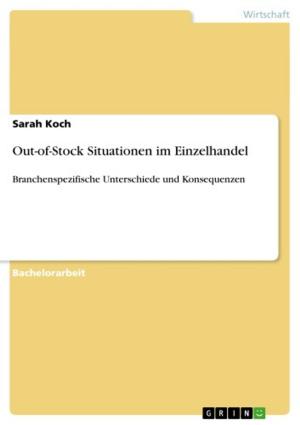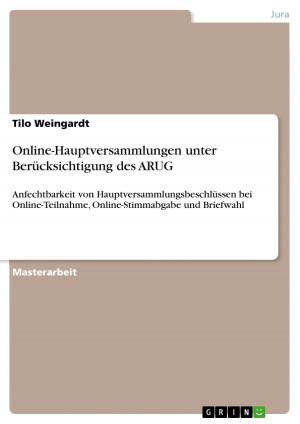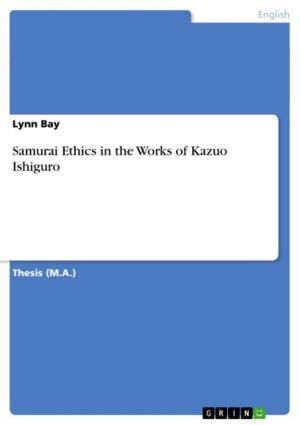Farmers Perception of Climate Change and Conservation Agriculture in Western Ethiopia
The case of Guto Gida and Sasiga districts
Nonfiction, Science & Nature, Technology, Agriculture & Animal Husbandry| Author: | Urgessa Tilahun | ISBN: | 9783656916192 |
| Publisher: | GRIN Verlag | Publication: | March 10, 2015 |
| Imprint: | GRIN Verlag | Language: | English |
| Author: | Urgessa Tilahun |
| ISBN: | 9783656916192 |
| Publisher: | GRIN Verlag |
| Publication: | March 10, 2015 |
| Imprint: | GRIN Verlag |
| Language: | English |
Master's Thesis from the year 2013 in the subject Agrarian Studies, grade: A, Wollega University, language: English, abstract: Climate is a primary determinant of agricultural productivity. Ethiopia, one of the developing countries, is facing serious natural resource degradation problems. Adaptation strategies for environmental conservation require cooperation and local participation in environmental rehabilitation which in turn requires examining the local peoples' willingness, beliefs, knowledge, attitude, interest and perception about climate change and conservation agriculture. The main objective of this study was to examine the farmer's perceptions and adaptation to climate change and participation in conservation agriculture. The data used for the study were collected from 142 farm households heads drawn from the five kebeles of Sasiga district and four kebeles of Guto Gida district. Primary data were collected using a structured questionnaire. In addition, secondary data were extracted from relevant sources to supplement the data obtained from the survey. In addition to descriptive statistics such as mean, standard deviation and percentages used, Heckman two stage sample selection model was employed to examine farmer's perceptions and adaptations of climate change. Farmers level of education, household nonfarm income, livestock ownership, extension on crop and livestock, households credit availability, temperature and precipitation were those variables which significantly affect the adaptation to climate change. Similarly, the farmers perception of climate change was affected significantly by information on climate, farmer to farmer extension, local agro -ecology, number of relatives in development group and perception of change in duration of season. A binary logit model was employed to analyze determinants of farmers' participation in conservation agriculture. Education level of the household head, number active family labour and main employment of the household head were significant variables in determining participation in conservation agriculture. Based on the results obtained, the following points were found to be of paramount importance: the government and policy makers should encourage the way farmers get extension on crop and livestock than ever in order to increase the farmer's adaptability to climate change. Perceiving the occurrence of climate change is prerequisite to adapt to the change. So, the government, policy makers, and NGOs should focus on the experience sharing between household farmers through conducting farmer to farmer extension.
Urgessa Tilahun was born to his father Tilahun Bekabil and his mother Yeshume Amente in 1983 in Ethiopia, East Wollega Zone, Haro Limu district Sombo Gadisa peasant association. He attended elementary school in Haro Primary School from 1993 to 2000. Then, He attended his senior secondary school in Limu Senior Secondary School from 2001 to 2002 and his preparatory education in Gida Ayana Senior Secondary School from September 2003 to June 2005. He then joined Addis Ababa University, in January 2006 and graduated with Bachelor of Arts Degree (BA) in Finance and Development Economics in July 2008 and He has done his MSc education at Wollega University by Agricultural Economics. He was served as Non Governmental Organizations Officer at East Wollega Zone Finace and Economic Development Office and now He is serving Haro Sabu agricultural Research Center as socio-economics researcher.
Master's Thesis from the year 2013 in the subject Agrarian Studies, grade: A, Wollega University, language: English, abstract: Climate is a primary determinant of agricultural productivity. Ethiopia, one of the developing countries, is facing serious natural resource degradation problems. Adaptation strategies for environmental conservation require cooperation and local participation in environmental rehabilitation which in turn requires examining the local peoples' willingness, beliefs, knowledge, attitude, interest and perception about climate change and conservation agriculture. The main objective of this study was to examine the farmer's perceptions and adaptation to climate change and participation in conservation agriculture. The data used for the study were collected from 142 farm households heads drawn from the five kebeles of Sasiga district and four kebeles of Guto Gida district. Primary data were collected using a structured questionnaire. In addition, secondary data were extracted from relevant sources to supplement the data obtained from the survey. In addition to descriptive statistics such as mean, standard deviation and percentages used, Heckman two stage sample selection model was employed to examine farmer's perceptions and adaptations of climate change. Farmers level of education, household nonfarm income, livestock ownership, extension on crop and livestock, households credit availability, temperature and precipitation were those variables which significantly affect the adaptation to climate change. Similarly, the farmers perception of climate change was affected significantly by information on climate, farmer to farmer extension, local agro -ecology, number of relatives in development group and perception of change in duration of season. A binary logit model was employed to analyze determinants of farmers' participation in conservation agriculture. Education level of the household head, number active family labour and main employment of the household head were significant variables in determining participation in conservation agriculture. Based on the results obtained, the following points were found to be of paramount importance: the government and policy makers should encourage the way farmers get extension on crop and livestock than ever in order to increase the farmer's adaptability to climate change. Perceiving the occurrence of climate change is prerequisite to adapt to the change. So, the government, policy makers, and NGOs should focus on the experience sharing between household farmers through conducting farmer to farmer extension.
Urgessa Tilahun was born to his father Tilahun Bekabil and his mother Yeshume Amente in 1983 in Ethiopia, East Wollega Zone, Haro Limu district Sombo Gadisa peasant association. He attended elementary school in Haro Primary School from 1993 to 2000. Then, He attended his senior secondary school in Limu Senior Secondary School from 2001 to 2002 and his preparatory education in Gida Ayana Senior Secondary School from September 2003 to June 2005. He then joined Addis Ababa University, in January 2006 and graduated with Bachelor of Arts Degree (BA) in Finance and Development Economics in July 2008 and He has done his MSc education at Wollega University by Agricultural Economics. He was served as Non Governmental Organizations Officer at East Wollega Zone Finace and Economic Development Office and now He is serving Haro Sabu agricultural Research Center as socio-economics researcher.















